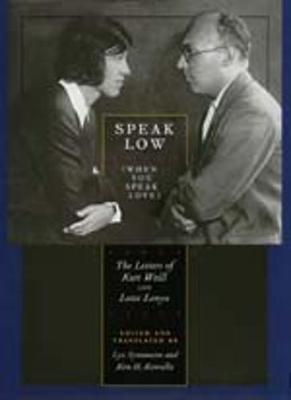Not since perhaps Eleanor and Franklin has there been so provocative a public pair: fiercely independent and yet codependent, they spent twenty-five years discovering a way they could live together after they figured out that they couldn't live apart. In 1932 they separated; in 1933 they divorced. They reunited in Paris in 1935 and then went to New York; in 1937 they remarried and together applied for American citizenship. Except for brief periods of separation, their relationship remained what it had always been, simultaneously tenacious and tumultuous. Yet Weill and Lenya required one another on a creative level that transcended ordinary emotional, erotic, and professional bonds. Although she was musically untrained, Lenya's canny theatrical sensitivity and innate intelligence enabled her to become Weill's most trusted critic as well as his most famous interpreter, especially as Jenny in The Threepenny Opera. As Weill rhapsodized, "When I feel this longing for you, I think most of all of the sound of your voice, which I love like a very force of nature." The letters are filled with artistic news, reactions to world events, reports on work-in-progress, and reflections on the creative process and the experience of exile. We get a backstage view of German music and theater, the American musical theater in the late thirties and forties, and the Hollywood studios. Together Kurt Weill and Lotte Lenya have come to symbolize what was most vibrant about the experiment of Weimar culture in the Golden Twenties and what was most vital among the contributions to American culture by Central European emigres.
- ISBN10 0520212401
- ISBN13 9780520212404
- Publish Date 17 December 1997 (first published 5 May 1996)
- Publish Status Out of Print
- Out of Print 17 June 2021
- Imprint University of California Press
- Edition Annotated edition
- Format Paperback (US Trade)
- Pages 554
- Language English
